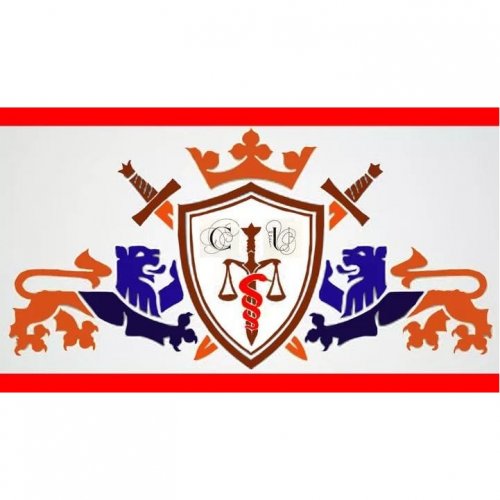Best Technology Transactions Lawyers in Ankara
Share your needs with us, get contacted by law firms.
Free. Takes 2 min.
List of the best lawyers in Ankara, Turkey
About Technology Transactions Law in Ankara, Turkey
Technology Transactions Law in Ankara, Turkey, governs the legal aspects of transactions involving technology, including software development, licensing agreements, data privacy, intellectual property rights, and more. This field of law ensures that all parties involved in technology-related agreements are protected and compliant with Turkish regulations. Given Ankara's strategic focus on technological innovation and growth, the legal framework here is designed to support and facilitate transactions between tech companies, startups, and global investors.
Why You May Need a Lawyer
Individuals and businesses may require legal assistance in Technology Transactions for various reasons:
- Contract Drafting and Negotiation: Drafting clear and enforceable contracts is crucial. Lawyers help ensure that technology agreements protect your interests, minimize risks, and comply with local law.
- Intellectual Property Protection: Protecting your technology innovations is vital. Legal experts can guide on patent filings, trademark registrations, and copyright issues.
- Data Privacy and Compliance: With Turkey's regulations on data protection, companies need to ensure compliance to avoid legal pitfalls. Lawyers provide advice on adhering to local data privacy laws.
- Dispute Resolution: In case of conflicts or breaches in agreements, legal professionals offer dispute resolution services to manage and resolve issues effectively.
- Transactional Advisory: For mergers, acquisitions, or sales involving technology assets, legal guidance is key to structuring favorable deals.
Local Laws Overview
In Ankara, technology transactions are subject to a range of laws that cover various aspects of tech-related activities:
- Intellectual Property Law: Encompasses regulations that protect creations of the mind, such as inventions, designs, and artistic works.
- Data Protection Law: Turkey's Data Protection Law requires companies to handle personal data with care and in compliance with set standards.
- Commercial Code: Governs general business practices and includes specific provisions relevant to technology contracts and transactions.
- Electronic Commerce Regulations: Covers the sale of goods and services online, ensuring compliance with electronic transaction standards.
Frequently Asked Questions
What are Technology Transactions?
Technology transactions involve the buying, selling, licensing, or distribution of technology products or services. This includes software licensing, hardware purchases, and digital services.
Why is intellectual property important in Technology Transactions?
Intellectual property (IP) is crucial as it protects the ownership rights of technology creators and innovators, granting them exclusive control over the use and distribution of their inventions.
How does data protection law impact Technology Transactions?
Data protection laws ensure the privacy and security of personal information processed during technology transactions, requiring businesses to comply with stringent data handling practices.
What is a technology transfer agreement?
It's a contract where one party agrees to transfer technology, expertise, or knowledge to another party, often involving licenses or intellectual property rights.
Can I conduct technology transactions without a lawyer?
While possible, it's not advisable, as legal professionals provide essential guidance to navigate complex legal requirements and protect against potential legal liabilities.
How do local laws affect international technology transactions?
International transactions must adhere to local laws, which can affect contract terms, compliance obligations, and dispute resolution mechanisms.
What should be included in a technology licensing agreement?
A comprehensive licensing agreement should cover the scope of the license, payment terms, IP rights, confidentiality clauses, and dispute resolution procedures.
Are there any government incentives for tech startups in Ankara?
Yes, the Turkish government offers various incentives, grants, and tax benefits to support and promote technology startups and innovation.
What are common disputes in Technology Transactions?
Typical disputes involve breaches of contract, intellectual property rights violations, data breaches, and disagreements over licensing terms.
Where can I learn more about Technology Transactions laws in Turkey?
Consider consulting legal experts or reviewing resources provided by local legal institutions or governmental bodies focused on technology and innovation.
Additional Resources
For further assistance, consider the following resources:
- TÜBİTAK (The Scientific and Technological Research Council of Turkey): Provides guidance and funding opportunities for tech innovation.
- KOSGEB (Small and Medium Enterprises Development Organization): Offers support programs aimed at tech startups and small businesses.
- TOBB (Union of Chambers and Commodity Exchanges of Turkey): A platform for networking and resources for businesses operating in the tech sector.
Next Steps
If you seek legal assistance in Technology Transactions in Ankara, Turkey, consider the following steps:
- Research Local Law Firms: Look for firms specializing in technology law. A local firm will be better equipped with knowledge of the local legal landscape.
- Schedule Consultations: Arrange initial consultations to discuss your needs and gather opinions on your situation.
- Assess Expertise: Ensure the lawyer or team has relevant experience specifically in technology transactions.
- Clarify Costs: Understand the fee structure, whether hourly, fixed, or contingent, to assess affordability.
- Engage a Professional: Once you select the right legal representative, they can guide you through compliance, negotiation, or litigation processes.
Lawzana helps you find the best lawyers and law firms in Ankara through a curated and pre-screened list of qualified legal professionals. Our platform offers rankings and detailed profiles of attorneys and law firms, allowing you to compare based on practice areas, including Technology Transactions, experience, and client feedback.
Each profile includes a description of the firm's areas of practice, client reviews, team members and partners, year of establishment, spoken languages, office locations, contact information, social media presence, and any published articles or resources. Most firms on our platform speak English and are experienced in both local and international legal matters.
Get a quote from top-rated law firms in Ankara, Turkey — quickly, securely, and without unnecessary hassle.
Disclaimer:
The information provided on this page is for general informational purposes only and does not constitute legal advice. While we strive to ensure the accuracy and relevance of the content, legal information may change over time, and interpretations of the law can vary. You should always consult with a qualified legal professional for advice specific to your situation.
We disclaim all liability for actions taken or not taken based on the content of this page. If you believe any information is incorrect or outdated, please contact us, and we will review and update it where appropriate.











